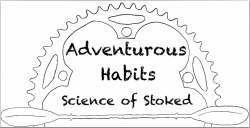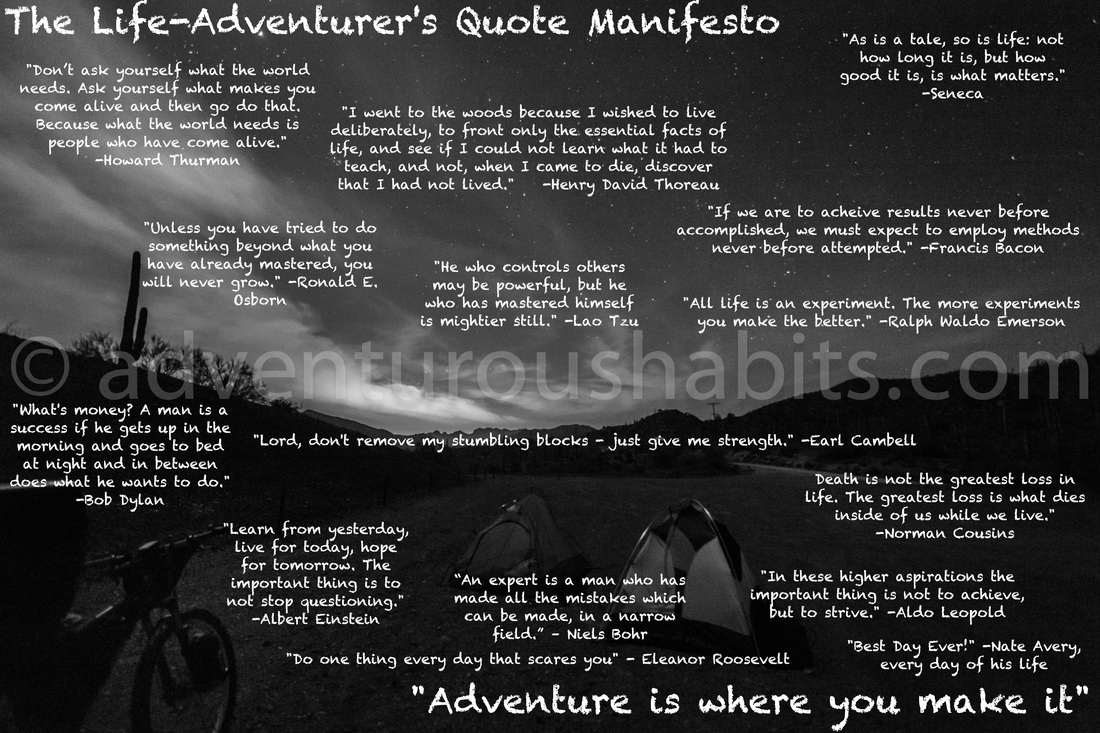That was of course a special circumstance of backpacking trip. On more typical trips with standard fare of freeze-dried, chemical-laden lightweight backcountry meals, I have a long history of having an upset stomach, feeling less-than-awesome, and wondering how I could get more nutrient-rich vegetables and fats to come along in my pack.
So three years ago, a great experiment began. I have backpacked with all manner of strange things as sustenance, including one trip I did with little more than Bulletproof Coffee in my pack. Here are a few tricks I learned.
*Note: I have found that the most effective metabolic energy source for backpacking is to be in fat-burning mode. This is the 'slow burn' mode that can be sustained for a very long time. You will find that most of my suggestions revolve around low-carb backpacking in order to support this type of energy production.
1. Chlorella
Chlorella is a single-celled algae that is - for it's weight - calorically dense, nutrient-dense, and even protein-dense. Interestingly, it can be used as a heavy metal detoxicant, which is why I originally started experimenting with it. Eventually I determined that it made me feel much better when eating backcountry meals, as well.
2. Chia Seeds
These are the famous runner's seed that have experienced an explosion in popularity since they were discussed in Born To Run (a truly amazing book, by the way), which is convienient because you can find them at most grocery stores. They have a very high ratio of Omega-3: Omega-6 fatty acids, which means that if you are consuming high amounts of omega-6 on your trip (or if you eat a SAD diet during your normal life), these can offset some of the damage. The reason is that Omega-3 and Omega-6 fatty acids will compete for receptor sites in the body (of which there are only so many), so bumping up the amount of Omega-3 will allow more of the receptor sites to end up with this non-inflammatory fatty acid. Translation: you and your formerly-achy joints feel WAY better throughout the duration of the trip. *Last note: because these polyunsaturated fats can be oxidized quickly, its best to keep them cold. Not always possible while backpacking, so they will be fine for the duration of your trip, but before your trip store them in the fridge.
3. MCT Oil
MCT (Medium Chain Triglyceride) Oil is a derivative of coconut oil, but stronger. As the name suggests, it contains the medium- and short-chain fatty acids that can be broken down by the body extremely quickly, providing a quick boost of energy that is much more sustainable and better for you than any sugar-filled 'sports gel' out there.
However, where MCT Oil really shines is during 'fasting' (not really fasting if you take MCT oil, but it supports similar processes energetically). I no longer eat breakfast on backpacking trips, but rather have Yerba Mate and a tablespoon of MCT Oil. Essentially, the high quality fats that it delivers to your body kick your body over into fat-burning mode very quickly, allowing you to backpack for an extremely long period of time before having any real food (for lunch usually). BUT, there is one condition to this working: you must have a fat-burning metabolism prior to your trip. This typically is achieved using a low-carb diet, but I prefer my own version of the evolutionary diet. Many people also achieve this with Intermittent Fasting or Bulletproof Fasting.
BUT WAIT! There's one more advantage to MCT Oil - it makes THE BEST skin/burn lotion in the world. Seriously, try it out on your skin in a normal situation and you will notice immediately. It also removes scars (in my case I was actually disappointed by that as I thought I looked cooler with it).
4. Collagen
Collagen is essentially the parts of animals that we don't eat anymore (the bones and cartilage), but that support our joints the most. I carry this in a little ziploc and drink some (mixed with water) right before bed to support recovery and joint health.
5. Tumeric
Tumeric can probably be found in your spice drawer, and it makes for an unbelievable anti-inflammatory. I mix some in with my collagen before bed.
6. Cordyceps Extracts
Cordyceps boost energy by boosting ATP production and increasing the efficiency of oxygen utilization. Pretty amazing stuff, this is.
7. Coffee Beans
No, not the coffee drink - the beans themselves. I love to crunch down on fresh, unground beans at any time of the day that I want a little caffeine boost. Remember though, folks, caffeine is indeed a drug. Treat it as such.
8. UCAN SuperStarch
Superstarch is an extremely heavy (molecularly-speaking) and complex carbohydrate, which means that it takes a long time to break down, thus allowing you to stay in the fat burning zone while consuming plentiful carbohydrate. Pretty awesome.
9. Cacao Powder
I love chocolate. So, sometimes you just need a hot chocolate drink at the end of the day. It may be a bit more bitter than you are used to, but if you adjust your palate it is quite delicious, and nutritious!
10. Yerba Mate
I don't drink coffee anymore because I much prefer Mate. I bring a backpacking cup for use as a gord on relaxing trips, or just brew in a small filter on more get-up-and-go trips. Whatever the case, it typically takes less time and is lighter weight than trying to make a real breakfast.
11. Athletic Greens
Athletic Greens or a knockoff brand can help to support your body with nutrients that you may be missing in your now vegetable-deficient backpacking diet. I bring a little ziploc and drink them with dinner.
12. Branched Chain Amino Acids
BCAA are the building blocks of protein, so your body can basically take them and make proteins that it needs out of them. BCAA imbalance is something to look out for, but taking BCAAs in the morning while completing the 'fast' described earlier (MCT Oil section) along with D-Ribose and Creatine can make you feel like a superhero.
13. D-Ribose
D-Ribose is a simple sugar that is found in all life and basically kick starts the ATP process. This is another excellent choice when fasting, as it can provide you with amazing backpacking energy while keeping you in fat-burn mode, supporting all-day energy. It's effects are synergistic with creatine, and I usually take both of them with BCAA.
14. Creatine
Creatine serves to help transfer ADP back into ATP to support energy. It can also be stored as an energy reservoir. Many people associate creatine with bodybuilding, but it is actually just as much of an anti-aging and brain support supplement that many experts believe everyone who can be taking it should be taking it. I have mine with my D-Ribose and BCAA.
Now, notice I didn't extensively cite studies or go into too much detail on the science here... the body is an extremely complex system, and as much as we want every trick to work for everybody, it doesn't always. I tried out plenty of things recommended by other people that had no effect, so experiment for yourself!


